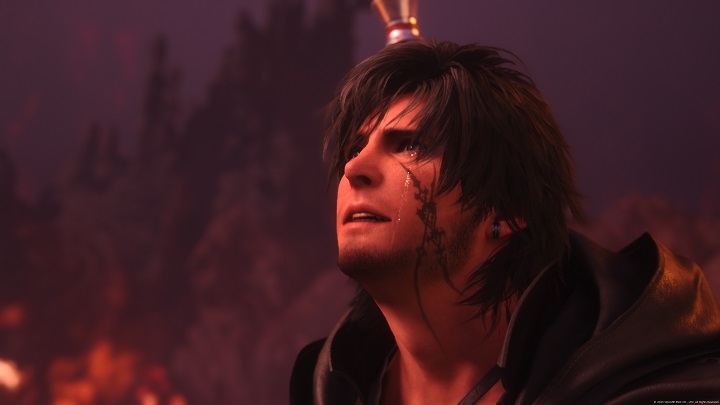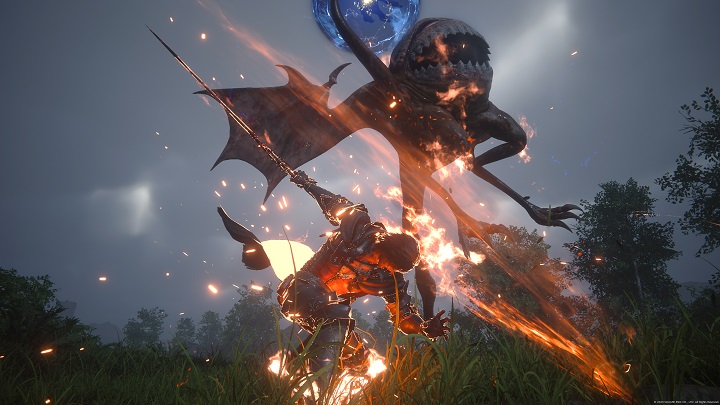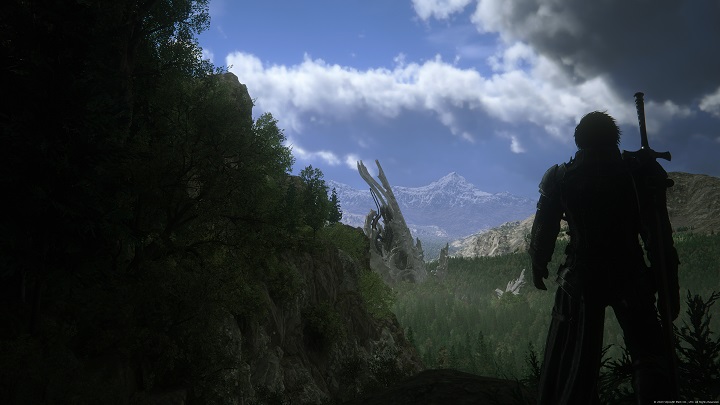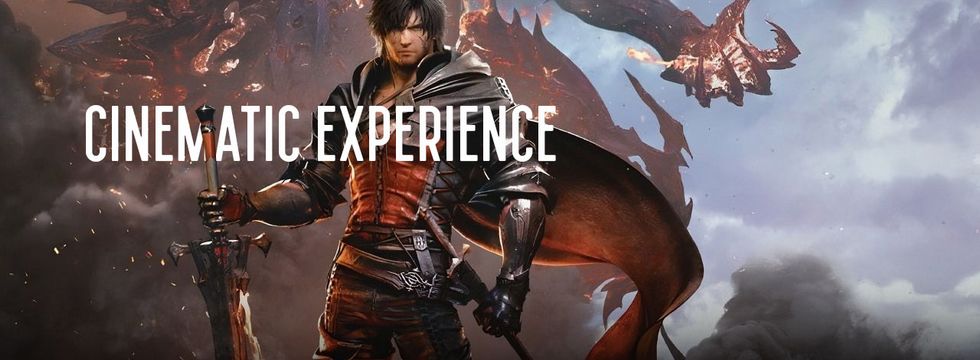author: Krzysiek Kalwasinski
If You Ask Me, Final Fantasy XVI is the Perfect Cinematic Experience
The cinematic experience in games is a rather complex topic and, at the same time, one that can evoke a somewhat negative connotation. However, there are productions that do it just fine. One of them is Final Fantasy XVI.
It seems that the cinematic experience is a relatively new concept that today (or perhaps always) has been dominated by Sony. However, this isn't entirely true, as games that focus on storytelling and strive to be as cinematic as possible have been around for a very long time. Let the first installment of Prince of Persia (1989) and Another World serve as an example. The game about the prince presented a new level of animation quality, demonstrating that platform games can present a realistic, cinematic even, gameplay experience. On the other hand, Eric Chahi's title aimed for something more ambitious despite its rather minimalistic narrative.
Over the years, the concept of cinematic games has greatly evolved. Not just due to having more cut-scenes, but because of the nature of the gameplay, which was getting more complex, with improved animations to imitate film even more. And while sometimes, a little imagination was required to really see the cinematic experience, each passing year made it less and less an obstacle.
For me, the first game to really break that spell was Metal Gear Solid. Since then, I've believed that the cinematic experience is about the perfect combination of storytelling and gameplay. I've also thought that both of these elements can function independently because there is enough depth in each. These convictions were strengthened not only by Hideo Kojima's later games, but also by, for instance, Mafia. Similar to Red Dead Redemption, as this is a title that strives to quite realistically recreate the life of the main protagonist. It also provides many ways to enhance immersion, such as strong focus on details.
Are you a game or a film?
I can safely say that action games with cinematic elements were my favorite genre. Some of these productions had flaws, resulting from technological limitations – for instance, Syphon Filter, which interestingly imitated 90s spy action movies, but at the same time, many of its features required leniency. Anyway, I'm writing this with the benefit of hindsight because when I first saw an opponent I had shot falling and screaming from a height during gameplay, I almost yelled myself (and I had to hold my head because I was afraid it would explode). In many ways, it was just a different level and something that blurred the line between the worlds.
During the next generation of consoles, in the days of the PS2, the first Xbox, or the underrated "cube," game developers could push the boundaries even further and take game cinematography to a higher level. The remake of the first Resident Evil is a perfect example of that, as are Splinter Cell, Devil May Cry, Silent Hill 2, and Shadow of the Colossus. These titles allowed us to fulfill fantasies (sometimes ones we had no clue about) and also offered highly satisfying gameplay that made you want to come back to them. My favorite games are from that era.
The next generation, the days of the PlayStation 3 and Xbox 360 were the beginning of the crisis that I began to feel as a player. I observed the game designs at the time, and the only thing that came to mind was that I wasn't the target audience for what was considered the best. The reason was quite simple. I experienced some sort of identity crisis in all of this – because the gameplay was already getting less attention than before..
I also noticed that individuals in my close circle who had previously looked down on this form of entertainment were highly interested in it during that time. Today, all of this has gained momentum, especially when you look at the games released by Sony. "Cinematic games that complete themselves" – that's what I like to call them. The developers appear to be ashamed of their own medium and aren't inclined to fully tap into its potential. Instead, they prefer to deliver a film that you can occasionally play, even if we're talking about action games, not something like the rather poor work of David Cage. I believe that this approach leads to obvious drawbacks. But people not only don't mind it – they actually really like it.

JAPAN!
Thankfully, the era of PS3 and Xbox 360 wasn't as bleak as I first thought. All thanks to the creativity of Japanese developers. They further enhanced the cinematic quality of their games in the same way as in the previous generation, while still keeping in mind what is most important in them. Titles such as Nier, Vanquish, Killer is Dead, or Catherine restored my faith in my favorite form of entertainment – along with some Western productions, such as Max Payne 3 and Deus Ex: Human Revolution. The situation improved over time, as the seventh generation was a period when Japanese creations were openly despised. The echoes of this can still be heard, but fortunately, they are much quieter now.
Final Fantasy XVI is the proof of that. It's a cause for celebration for me, as it represents the wonderful philosophy that Japanese developers adhere to – it's meant to be cinematic, but when we play, we do. Not everyone is pleased with this, which is no secret – it's easy to see that Final Fantasy XVI has caused a division among the players. This isn't a traditional installment of the series – if such a thing can be said about a franchise that has always undergone significant changes and reflected the given times with each installment. This is a popular series, and hardly anyone in this genre wants turn-based battles anymore (myself included, a long-time fan).
On the other hand, I see FF16 as a rebellion against pushing RPG elements in every single game. It's as if the developers said: "No, we're sick of cramming RPG everywhere, let's do something different, less exploited." And they did. A game that doesn't waste the player's time, without mechanics that scream about depth but can't deliver it. The sixteenth Final is simple in structure, with a clear division between individual segments, and at the same time focused on gameplay as much as on narrative – just like in the good old days. That's why I love this game.
Despite its simplicity, it doesn't lack depth. Final Fantasy XVI definitely has it, although you have to be able to appreciate it and play a little with the available options. Comparisons to Devil May Cry have been made many times, and this series cannot be denied its complexity. Both games share a complex and impressive combat system that you need to – or at least should – get into. And the more we strive for it, the more pleasure we will get from playing. It may not be the type of depth that fans expected, but it's definitely there.

However, I must also stress that FF16 is a difficult game to classify. There's a debate about the departure of this installment from tradition. In my opinion, completely unnecessary. Some argue that there are no RPG elements, but I see the same elements in Kingdom Hearts – a series that has always been recognized as an action RPG. However, trying to classify FF16 as an RPG is a topic for a separate text. Especially since the definition is very broad. Besides, I don't really want to argue with the developers themselves, who have clearly stated their intentions. The genre affiliation alone isn't that crucial – it’s the series' identity that’s key, as evidenced in numerous aspects of part sixteen.
Great visuals and emotions
Final Fantasy XVI should be seen as something more understandable. To prevent people from saying that this game became outdated even before its release. Because there are no mini-games or tons of markers on the map – and thus "there's nothing to do." Meanwhile, there's no shortage of extra content. We have additional fights (similar to those in Final Fantasy 12), side quests, and an arcade mode for those who like to crank out higher scores. That's enough and it aligns well with the nature of the story itself.
The story is just wonderful, but I won't write anything new compared to what was said in our review – except for those that wrongly call FF16 "the Japanese Game of Thrones." It's one of the few games that, for me, is almost perfect. I really liked Clive (he takes the podium of my favorite characters in the series). The subsequent events and battles, combined with the outstanding music, allowed me to appreciate the amazing visuals and provided unforgettable emotions. I thought it would be difficult to exceed the scale of Asura's Wrath, but they did it – although these games shouldn’t really be compared.

I wouldn't call Final Fantasy XVI the best example of cinematic experience if it weren't for the way it draws on cinematic heritage. The game engages players with its shots, delivering an absorbing performance even as it portrays a simple conversation. The characters communicate through more than just words, using body language to gesture in various ways and perform different minor or major actions – such as walking around the room or lighting a cigarette. These are elements that are hard to come by in modern blockbuster games such as The Witcher 3 or Ghost of Tsushima, where I criticized the talking heads – because these are the kinds of visuals “gifts” during the cut-scenes. Directing is a form of art that not everyone can master, and since games contain cut-scenes (often long and crucial for the overall experience), it's important to ensure their quality.
It's unfortunate that Final Fantasy XVI lacks significant impact, because of which it will be forgotten rather quickly. Nothing new. Numerous remarkable things have gone unnoticed and failed to inspire the industry's major players. But as long as there are developers so full of passion and love for games, AAA titles will be interesting!
